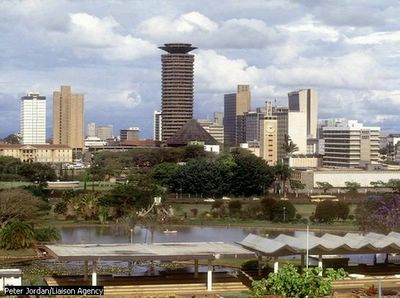

What the Blog?
I was talking to Pingting the creator of find the time to rhyme--you can also click on Shop in the sidebar to go to The House of Pingting--about blogs and a mutual friend. Our friend doesn't play on the Internet. I'd really love it if he did, say by doing a blog. But Pingting said, "I don't think he'll ever get online."
Tribe is a social networking site. Like other sites blogs are a part of the package and a neat feature is being able to click on a link to a page of the blog posts in your friends network. Recently one of my friends has been posting each day something in honor of Black History Month. I'm so enjoying reading his posts, I thought doing the same would be worthwhile. Wow, two posts in and what's made obvious is my ignorance. Cool, I hope I learn something along the way.
My ignorance about Africa is a big part of this blog. At first I thought my friends would read it, but I now see my relationship to my readers is more complicated than that. So I imagine that perhaps this blog is a place especially for other Americans to think a little differently about Africa and African issues. Yikes! That means many if not most of you know a whole lot more than I do. Still it's really nice to be in the community of bloggers about Africa, and maybe I'll learn something.
The picture is of Nairobi, Kenya snatched from the Web here. This morning the first blog post I read was from Potash who writes A Kenyan Urban Narrative. The post was about a corruption scandal revealed dramatically by John Githongo an investigator appointed by the Kenyan government; revealed, with tapes, in Britain. Potash is in Kenya, his posts and several others I read by Kenyan bloggers were a little hard for me to piece together. The problem is not knowing some of the things taken for granted that everyone knows. Then comes Ethan Zuckerman to the rescue, he masterfully puts it all together in this post.
So I've got a brilliant friend who will probably never turn on a computer much less blog. There's a real life and he leads it fully. The Internet puts an incredible array of information right in front of our eyes. But at the end of the day what really matters is how our feet touch the ground.
Certainly there are blogs, and probably will be long into the future, that have huge readerships. Nevertheless, I find the blogs that have small readerships very important. It seems there that intimate collaboration can really work. Big blogs can coordinate mass actions. Little blogs perhaps can set small actions into play.
My brilliant friend is very adept in the ways he plants his feet. Maybe the Internet will play hardly a role in his life. There must be lots of others like him everywhere. Certainly that's true in Africa, even if many people there don't have to go out of their way to avoid the Internet. With my friend, I know that what makes a difference is right in what some call the "meat space." He's a good reminder to be practical; to try to make what I do online have some connection to the soil from which life is supported.
We do live in interesting times. The problems we all face as passengers on this planet Earth are daunting. There's a very real sense in which problems can be labled "Kenyan," "American" or any other locale, but because people are so connected these are just subsets to the larger sets of human problems and challenges. Zuckerman writes about the Kenyan scandal:
It’s unfortunate that Githongo’s needed to leave his home to offer this difficult look inside official corruption in Kenya - but, ultimately, the story has been told and Kenyan bloggers and journalists can now follow up leads, ask hard questions and try to ensure the whole story gets told. With our current administration in the US, we’re having a hard time getting any answers even when Senators are asking the questions. Perhaps someone needs to offer Alberto Gonzales a fellowship at Oxford so he can tell us what really happened with NSA wiretapping. If we flew him to the UK to meet with the BBC, would that qualify as “extraordinary rendition”?That's a little snark, but he also provides a context for understanding. I care very much about policies and corruption in my own country. And because I have Internet friends in Kenya who care very much about policies and corruption in their country, I want to understand. More than that, I relate.
Tonight on my Tribe blog I wrote about James L. Farmer. I'm ashamed to say I didn't know the name before tonight. He was a Medal of Freedom Winner and the founder of CORE (Congress of Racial Equality). The path to finding out about him was quite interesting to me, from Taj Mahal to Gandhi. I bet my offline friend could have told me a thing or two about Farmer. There have long been movements before the Internet. Farmer said of himself:
"I lived in two worlds," Farmer said late in life, recalling his role in the movement. "One was the volatile and explosive one of the new black Jacobins and the other was the sophisticated and genteel one of the white and black liberal establishment. As a bridge, I was called on by each side for help in contacting the other."Global Voices highlights "bridge blogs" blogs that join people across political boundaries. They ask, "The world is talking, are you listening?" What's important is how we move when we hear; the purpose for a bridge is to get somewhere. I think we all want to get to a better place.
No comments:
Post a Comment